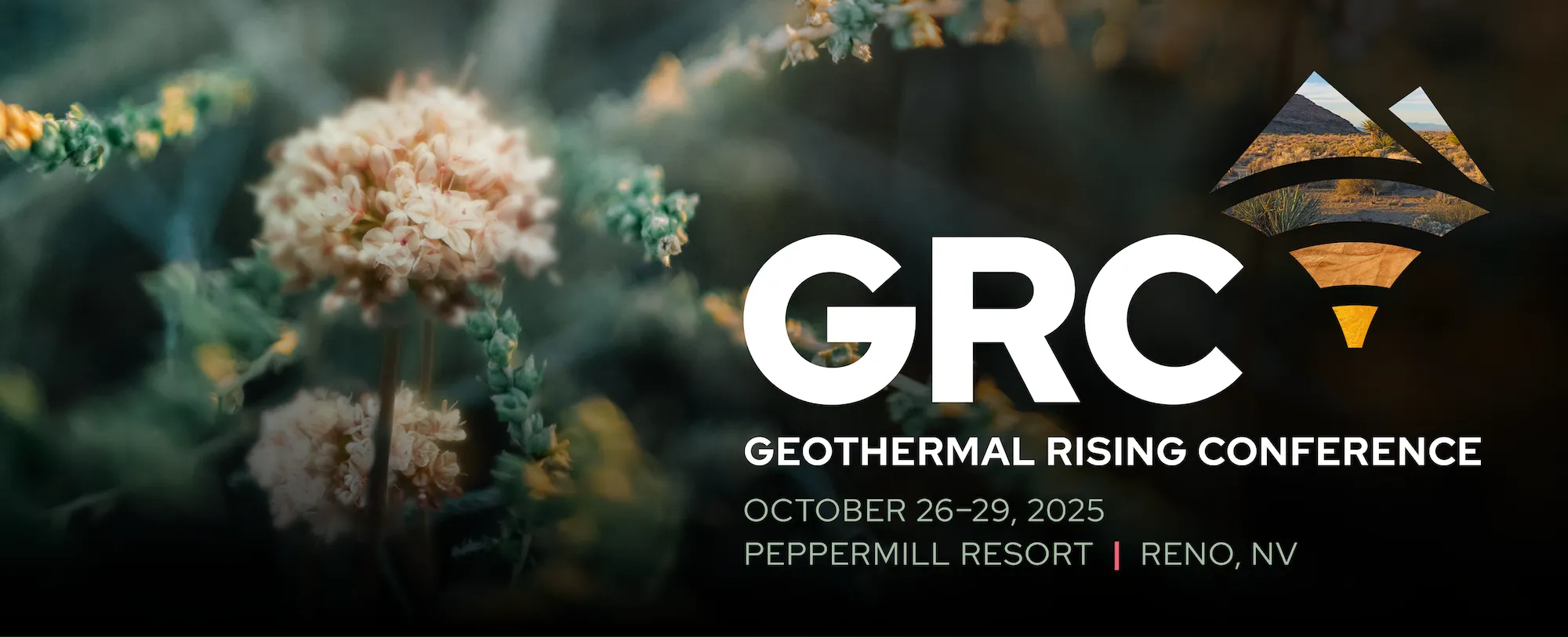Workshops
Workshop Schedule
Friday, October 24
- 9:00 AM – 5:00 PM | Workshop 1: Digital Geothermal Modeling and Simulation with Utah FORGE
- 9:00 AM – 5:00 PM | Workshop 2: Well Construction in Bits and Bytes (2-Day Workshop)
Saturday, October 25
- 9:00 AM – 5:00 PM | Workshop 2: Well Construction in Bits and Bytes (2-Day Workshop)
- 9:00 AM – 5:00 PM | Workshop 3: Integrated Geothermal Modeling: From Exploration to Optimization
- 9:00 AM – 5:00 PM | Workshop 4: Seismic Risk and Reservoir Integrity in Enhanced Geothermal Systems: Mechanisms, Monitoring, and Mitigation
Thursday, October 30
- 9:00 AM - 5:00 PM | Workshop 5: Pathways to Trust: A Learning Journey Towards Equitable Tribal Partnership
Workshop 1: Digital Geothermal Modeling and Simulation with Utah FORGE
Friday, October 24, 2025
9:00 AM – 5:00 PM
Delivering cost-effective geothermal projects requires careful integration of multi-disciplinary workflows. Digital tools can help drive this to ultimately reduce resource uncertainty, optimize system design and enhance production performance.
This workshop aims to provide attendees with the latest capabilities in digital geothermal asset evaluation and optimization for conventional and unconventional systems. The session will show an end-to-end geothermal workflow using digital technologies to demonstrate multi-disciplinary integration, deep-domain science and workflow automation. Using the Utah FORGE dataset and other selected case studies, attendees will learn how digital tools can enhance subsurface characterization to improve drilling campaign designs and determine the optimal field development strategy. Attendees will have a chance to get their hands on the technology and try selected workflows for themselves.
Key topics include:
- Multi-disciplinary subsurface characterization
- Data interpretation and integration (geology, geophysics, geochemistry)
- 3D geological model building and property modeling
- Geomechanics and fracture modeling
- Numerical modeling and simulation
- Surface-subsurface integration
Lunch and break service are included in the workshop registration fees ($575).
Workshop 2: Well Construction in Bits and Bytes
Friday, October 24 - Saturday, October 25, 2025
9:00 AM – 5:00 PM (both days)
This intensive 2-day workshop, held in conjunction with the GRC Annual Meeting, is designed for professionals across drilling, reservoir engineering, data science, and project development who want to drive geothermal well construction into the digital frontier. Co-led by industry veterans from Exceed Geo Energy, LSU, and global geothermal leaders, the workshop offers a field-tested, AI-enabled, and simulation-rich approach to solving today’s geothermal challenges—at both the surface and subsurface.
Day 1: Well Construction & Performance Management (Bits)
Understand how geothermal drilling differs from oil & gas
Budget wells within 3% of AFE using proven field tactics
Compare and optimize designs via digital twins
Hands-on AI deployment in Jupyter (ROP optimization, kick detection, CFD cementing)
Instructors: Nasikul Islam (Exceed Geo Energy), Dr. Mayank Tyagi (LSU)
Day 2: AI-Focused Geothermal Simulation & Modeling
- Learn geothermal heat transfer and wellbore-reservoir integration
- Run real-time predictive analytics on well logs
- Forecast production using ML models
- Explore challenges across diverse geothermal reservoirs
- Certification quiz: 20 MCQs (split across both days)
Who Should Attend:
Drilling, reservoir, and geothermal engineers
Data scientists and geothermal modelers
Project developers and operations leads
Anyone seeking hands-on geothermal AI applications
Lunch and break service are included in the workshop registration fees ($895).
Workshop 3: Integrated Geothermal Modeling: From Exploration to Optimization
Saturday, October 25, 2025
9:00 AM – 5:00 PM
Optimizing geothermal development demands a robust understanding of the resource throughout its lifecycle. This workshop is for geoscientists and reservoir engineers, integrating insights from geology, geochemistry, geophysics, reservoir, and facilities engineering to provide a comprehensive guide on executing a holistic geothermal asset development workflow. It also emphasizes how digital technologies can break down silos between various disciplines, enhance collaboration, and positively impact asset generation and commercial outcomes. Using a comprehensive dataset, participants will learn both the theoretical aspects of the technology and its practical applications within industry leading geothermal software (Oasis montaj, Leapfrog Energy, and Volsung). The course includes software access but will not be a substitute for comprehensive training in each software.
You’ll walk away understanding:
- How to incorporate Gravity, Magnetics, and EM into the conceptual modelling process
- How to use modern 3D tools to evaluate and understand geothermal systems
- How to incorporate geology, and geophysics, into your reservoir simulation workflows
- How to develop and calibrate reservoir models that coupled with the wellbore to surface network
- How to optimize your reservoir development strategy
Lunch and break service are included in the workshop registration fees ($575).
Workshop 4: Seismic Risk and Reservoir Integrity in Enhanced Geothermal Systems: Mechanisms, Monitoring, and Mitigation
Saturday, October 25, 2025
9:00 AM – 5:00 PM
As geothermal energy development expands into deeper, hotter, and more fractured environments, understanding and managing induced seismicity becomes increasingly vital. This session focuses on advances in seismic hazard assessment and reservoir integrity in Enhanced Geothermal Systems (EGS) and other high-enthalpy geothermal operations. This workshop aims to bridge geomechanics, geophysics, reservoir engineering, and seismic risk management to support safe, sustainable geothermal energy development.
Workshop Agenda
8:30 AM – 8:45 AM | Welcome and Introduction
Overview of workshop objectives, agenda, and logistics.
Speakers: No’am Dvory (University of Utah) / Nori Nakata (LBNL)
8:45 AM – 9:30 AM | Mechanisms of Induced Seismicity in EGS
Fundamentals: stress changes, pore pressure effects, fault slip behavior.
Speaker: Ahmad Ghassemi (University of Oklahoma)
9:30 AM – 10:15 AM | Fault Stability and Slip Potential in EGS Reservoirs
Geomechanics of fault reactivation.
Speaker: Kyungjae (KJ) Im (Caltech)
10:15 AM – 10:30 AM | Networking Break
10:30 AM – 11:15 AM | Seismic Data Interpretation and Risk Assessment
Event detection, magnitude, and mechanism solutions; probabilistic seismic hazard analysis (PSHA).
Speaker: Alexandros Savvaidis (UT Austin)
11:15 AM – 12:00 PM | Seismic Risk Mitigation: Traffic Light Systems and Beyond
TLS design principles, adaptive management, and real-world examples from geothermal projects.
Speaker: Ryan Schultz (ETH)
12:00 PM – 1:00 PM | Networking Lunch
1:00 PM – 1:45 PM | Seismic Monitoring Technologies: Networks to DAS
Monitoring strategies: surface/borehole arrays, DAS, fiber optics, real-time monitoring advances.
Speaker: Jonathan Ajo-Franklin (Rice University)
1:45 PM – 2:30 PM | Modeling Fault Activation from Well Stimulation at Project Cape
Comparative review of case study: what worked, what failed, lessons learned.
Speaker: Taeho Kim (Stanford)
2:30 PM – 2:45 PM | Networking Break
2:45 PM – 3:30 PM | Geothermal Development Seismic Hazard: Comparing Conventional and EGS-Related Seismicity
A broader perspective on seismic risk across different geothermal development strategies.
Speaker: Ole Kaven (USGS)
3:30 PM – 4:15 PM | Reservoir Integrity: Injection-Induced Stress and Failure
Wellbore stability, integrity, and managing thermal and hydraulic stresses in EGS reservoirs.
Speaker: John McLennan (University of Utah)
4:15 PM – 5:00 PM | Panel Discussion: Future Directions and Challenges
Open Q&A and panel with all lecturers. Focus on evolving strategies and upcoming technologies.
Moderators: No’am Dvory (University of Utah) / Nori Nakata (LBNL)
Lunch and break service are included in the workshop registration fees ($575).
Workshop 5: Pathways to Trust: A Learning Journey Towards Equitable Tribal Partnership
Presented by the Alliance for Tribal Clean Energy
Thursday, October 30, 2025
9:00 AM - 5:00 PM
Native American reservations cover approximately 5% of U.S. land and hold an estimated 10% of the nation’s energy resources, including vast geothermal potential. Unlocking these opportunities requires more than technical expertise — it demands cultural competency, respect for Tribal sovereignty, and a commitment to inclusive collaboration.
This immersive training introduces key principles from the Alliance’s 20-hour cultural competency program, offering a foundational understanding of Tribal governance, histories, contemporary realities, and best practices for engagement. Participants will gain insights into Tribal sovereignty, diverse governance structures, and cultural protocols, while learning how to avoid common missteps and build lasting, respectful partnerships that uplift communities and advance clean energy goals.
Why Attend?
- Learn how to approach Tribal partnerships with humility and respect.
- Understand the legal and cultural landscape shaping Tribal engagement.
- Discover how equitable collaboration can streamline permitting, unlock incentives, and create shared economic benefits.
Let’s build a future where geothermal innovation and Tribal sovereignty go hand in hand. Reserve your spot today and be part of the change.
Breakfast, lunch, and break service are included in the workshop registration fees ($495).
Audience: Geothermal developers, engineers, project managers, energy professionals, renewable energy researchers, and professionals from industry service providers (e.g., EPCs, consultants, equipment suppliers, testing and certification bodies, and financial and legal advisors), as well as local, state and federal government officials.
This workshop partially fulfills the cultural training requirement for becoming a certified Preferred Provider in the Alliance for Tribal Clean Energy’s Preferred Provider Program.
For information on additional training, email Pathways@tribalcleanenergy.org.



